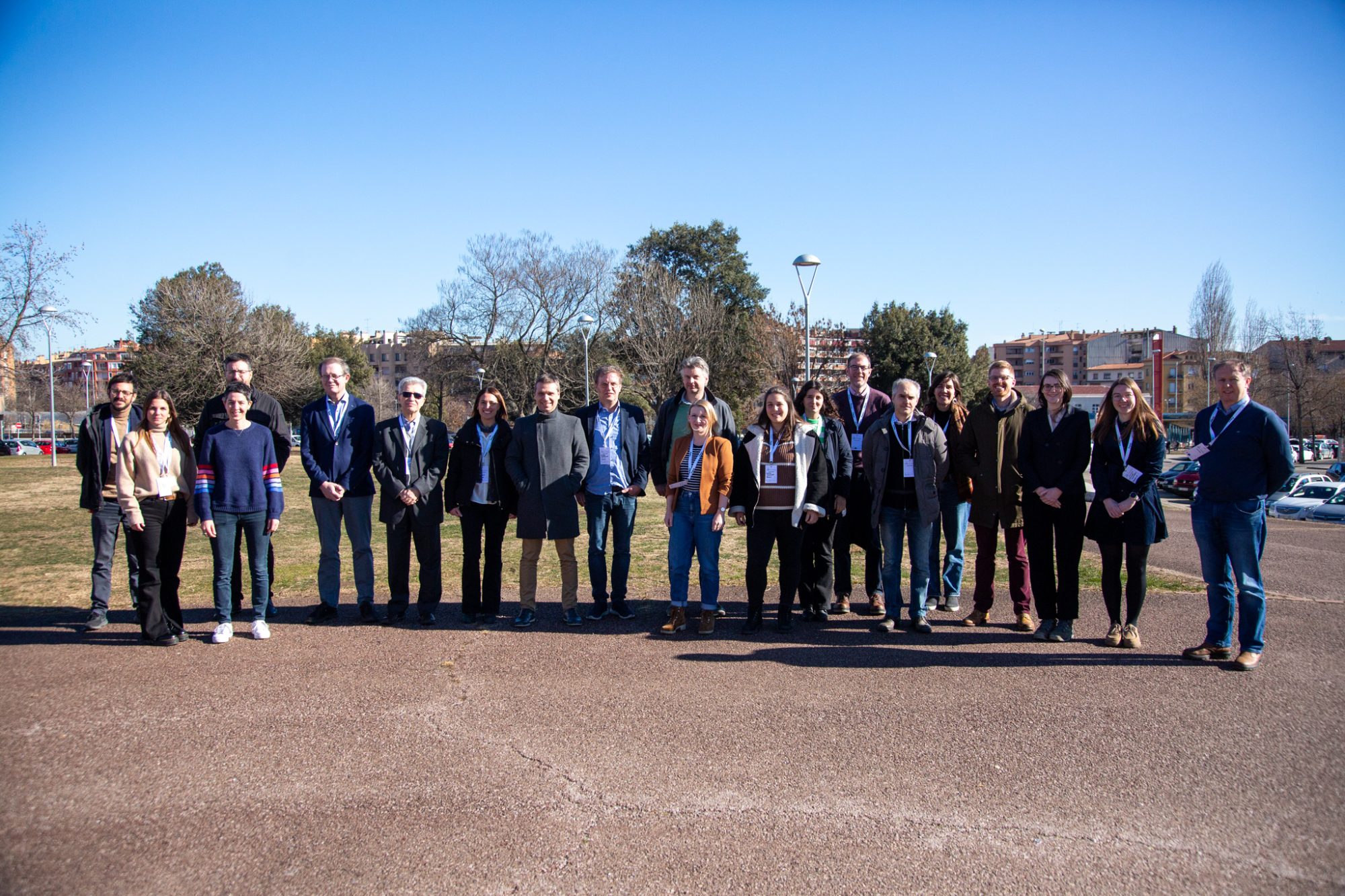The NUTRI-KNOW project will boost innovation in the agri-food sector
The project will work to amplify the impact of results previously achieved in Operational Groups across Europe

In recent years, the EU has funded a large number of Rural Development Programmes, which have been instrumental in helping many primary sector companies and research centres across the continent to develop innovative processes in many areas, such as the management of livestock manure and the nutrients it contains. However, it has also been found that such projects have not had the degree of impact that was hoped for and that there is much knowledge that remains under-exploited. For this reason, the European project NUTRI-KNOW, coordinated by the BETA Technology Centre of the University of Vic – Central University of Catalonia (UVic-UCC), will work to change the current dynamics of collecting and sharing this knowledge, and also to make it more accessible and practice-oriented.
The NUTRI-KNOW project, with a budget of 2 million euros and funded by the Horizon Europe programme, will be carried out by a consortium of 11 partners from Spain, Belgium, Ireland, Denmark, Italy and Germany. In Catalonia, the Department of Climate Action, Food and Rural Agenda (DACC) of the Government of Catalonia will also be involved. The launch meeting of the project, which was held on Tuesday at UVic-UCC, was attended by Elisenda Guillaumes, director general of Agriculture; Eva Espasa, vice-rector of Research and Knowledge Transfer at UVic-UCC; and Sergio Ponsá, director of CT BETA, among others.
Sergio Ponsá commented that “projects like this, which work to increase the impact of innovation, are the best example of the commitment that BETA has made from day one”. According to the director of CT BETA, “we also need to start talking about circular knowledge, and the need to give value to the work that has been done”.
From an academic point of view, Eva Espasa explained that “CT BETA itself, and the projects it coordinates or in which it participates, exemplify very well how it is and how we want the research model of our University to be”. In this sense, he explained that it must be a research “with an international vision and vocation, innovative, applied and conscious, that provides solutions to real problems and that, in addition, lands on issues and topics that have a real interest for our territory and the people who inhabit it”.
Elisenda Guillaumes, for her part, gave an overview of all the projects in which the DAAC is a partner. According to her, the Department of Climate Action, Food and Rural Agenda “hopes that projects like this one help to turn problems into opportunities, and therefore, it is time to share knowledge in order to take advantage of the achievements and progress made by the other countries participating in this project and make them a reality”.
The current reality
In Catalonia, the agri-food sector has so far had the tools to finance hundreds of Operational Groups and Demonstration Projects, thanks to the Government of Catalonia’s Rural Development Plan 2014-2020. The Operational Groups are two-year projects that are highly applied to a specific challenge, providing companies with access to work with technology developers, while the Demonstration Projects have given Catalan technology centres the opportunity to have resources to disseminate their own results.
Schemes like these, with minor differences, have been replicated in most countries and regions of the European Union. However, on the one hand, it has been noted that this type of project has not had the degree of impact that was expected, especially among the companies in the sector themselves. On the other hand, it has become clear that there is a large amount of knowledge about technologies, products, tools and innovative management recommendations for the agri-food sector that have been developed, but which are little exploited.
Faced with this reality, the NUTRI-KNOW project consortium will work with the aim of amplifying the impact of the results obtained previously in Operational Groups across Europe, with emphasis on the issue of nutrient management. NUTRI-KNOW will focus on this field, but it is expected that the methodologies that will be deployed can later be applicable in any field of interest and for any country or public administration in charge of managing funding calls for innovation in the agri-food sector.
To achieve this, it will be necessary to change the current dynamics followed to collect and share this knowledge, to make it more accessible and more practice-oriented. In this sense, one of the main contributions of the NUTRI-KNOW project will be the definition of new materials and methodologies to accelerate the dissemination and replication of the results achieved in operational groups.
In the long run, experiences such as NUTRI-KNOW should help to create new R&D&I governance models, better integrating new innovation projects and the most urgent needs, challenges and opportunities of the agri-food sector, in order to generate trust and establish effective connections that increase their impact. In addition, it will also avoid duplication with ongoing or completed projects, helping them to better allocate funding resources.
